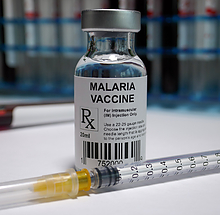 Despite decades of eradication efforts, malaria remains a global cause of disease and death, with the greatest burden largely affecting young children in Sub-Saharan Africa.
Despite decades of eradication efforts, malaria remains a global cause of disease and death, with the greatest burden largely affecting young children in Sub-Saharan Africa.
In 2021, an estimated 247 million people worldwide were infected with malaria resulting in 619,000 deaths, according to the World Health Organization (WHO).
That same year, the WHO approved the first malaria vaccine which has shown to significantly reduce deaths among young children. However, compared to other adolescent vaccinations, it has modest efficacy, preventing only about 30 percent of severe malaria cases.
Supported by a $483,000 grant from the National Institutes of Health (NIH), Michael Cummings, a professor of biology with an appointment in the University of Maryland Institute for Advanced Computer Studies, is working to understand the immune response to malaria to help scientists develop more effective vaccines.
Along with Cummings, who brings extensive biological data science expertise, the research team is comprised of Assistant Professor Andrea Berry, a pediatric infectious disease physician and malaria expert at the University of Maryland School of Medicine, and Assistant Professor John Altin, an immunology and genomics expert at the Translational Genomics Research Institute.
Their research investigates immune responses to malaria infection in infants and children in the Sub-Saharan countries Mali and Malawi, which are geographically distant sites with different malaria transmission patterns.
Cummings, who is also the director of the Center for Bioinformatics and Computational Biology, says the bulk of the data will be collected using a new customizable lab platform called PepSeq. The platform, which Altin helped create, starts with designing a “library” of peptides of interest—short strings of amino acids that are the building blocks of proteins. Each peptide is then linked to a unique DNA tag, which allows scientists to pinpoint which peptides are being targeted by which antibodies (or other proteins) in a sample.
The team will use a combination of statistical and machine learning approaches to analyze hundreds of thousands of peptides, with the goal of identifying antigens that will help inform vaccine development.
—Story by Melissa Brachfeld, UMIACS communications group